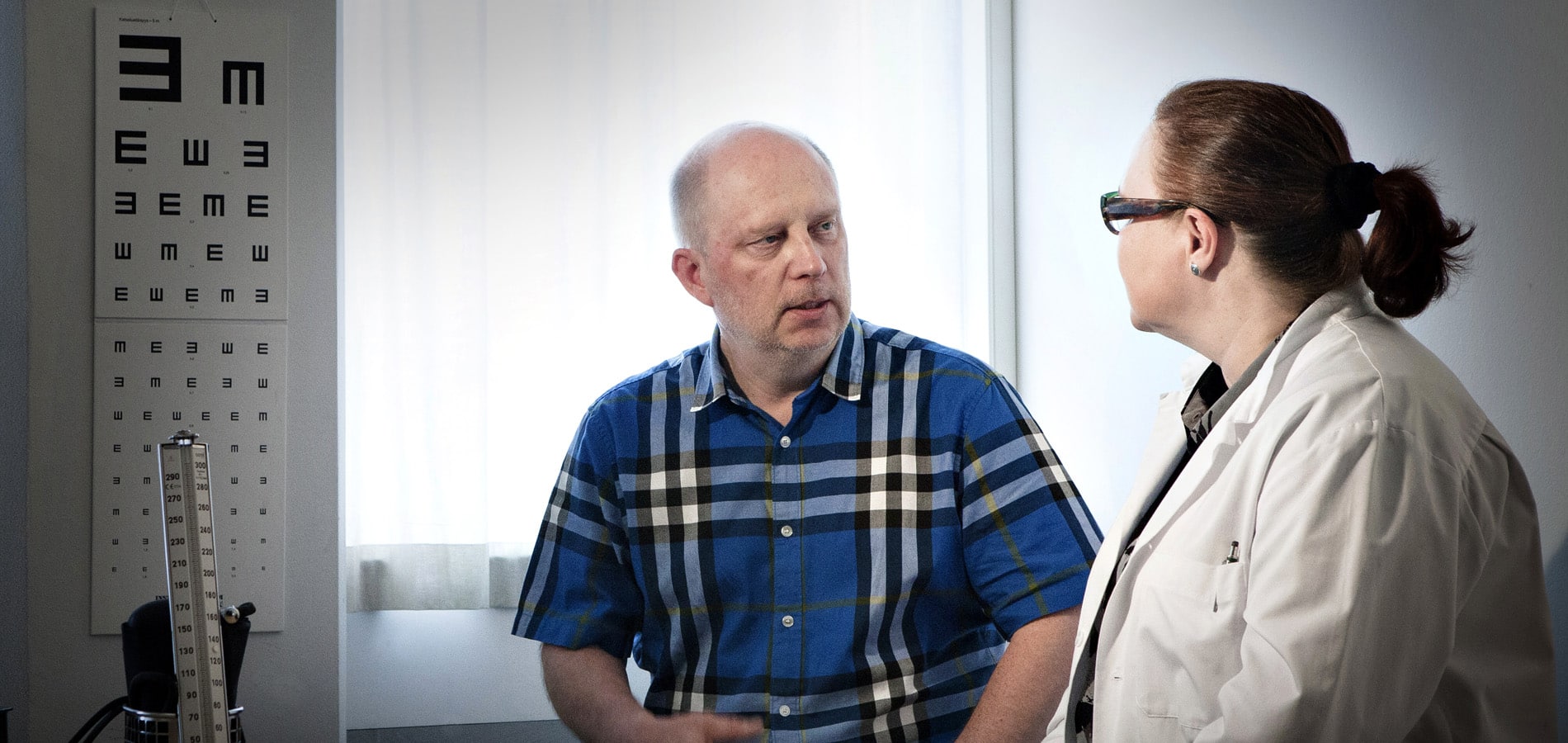
Cancer and work
When you are diagnosed with cancer, the first thing that may come to mind is that there will be a long period off work. But as with many other illnesses, cancer does not necessarily result in work incapacity or being off work for a long period.
Working during treatments
Most cancer patients return to work following treatment or even during treatment. Different sorts of cancer affect your work capacity in different ways and the possibilities of returning to work after being ill.
Cancers are treated in many different ways and not all forms of treatment impede your ability to work. Treatment is usually done in such a way that the patient goes for treatment during the daytime and returns home for the night. Many forms of cancer treatment have side effects, the majority of which soon pass. But cancer treatment can also cause pain and fatigue during the period of treatment and even long after treatment has finished.
Some patients are able to work while having treatment. It is a personal decision whether you go to work or not during treatment. For some patients it boosts their life management capability. But many people need to take sick leave during treatment or to be at work on a part-time basis.
You need to allow time for recovery. Working must not be a means by which patients try to push on with living a normal life even though the illness makes it impossible.
How should you tell them at work that you have cancer?
You do not have to tell anyone at work that you have cancer, but it is often the case that talking about it helps you cope with the new situation. You should decide whom you would tell about your illness and to what extent.
There is no obligation to inform your superior of the reasons for taking sick leave, as health care is subject to confidentiality. However, in terms of occupational health, it is important that your superior knows about factors and illnesses that limit employees’ work capacity should they be at work while receiving treatment.
In the initial stage it may be hard to talk about having cancer. When the illness gradually becomes part of your life it gets easier to talk about it. You can influence the way people react to the situation. You can speak openly about having cancer, be very matter of fact and unemotional. That way whoever you are talking to is able to behave in the same way.
When news of your illness gets around at work, it can be awkward to find yourself the centre of attention. On the other hand, you shouldn’t worry as the majority of people respond compassionately.
You can ask colleagues to help out practically or your superior about flexibility with respect to various tasks. When there is a good working environment, colleagues behave just as they have done before and do not let illness define a person’s worth as an individual. Support from colleagues can greatly help you cope during the treatment period and makes it easier to return to working life.
You might also be interested in

Follow-up care
After treatment, you will be followed up. Cancer patients are followed up at regular intervals. Follow-up varies depending on the type of cancer and how far the cancer has spread. You may receive follow-up care for some time after treatment in a specialist hospital and then transfer to primary care.
Read article
Back to work after cancer
A long absence from work may require support, flexibility and rehabilitation. The best results come from cooperation between the employer, employee and occupational health service.
Read article
How do I cope with it all?
The strongest emotions often subside gradually over time, and adjustment becomes more and more an inner work in itself.
Read article